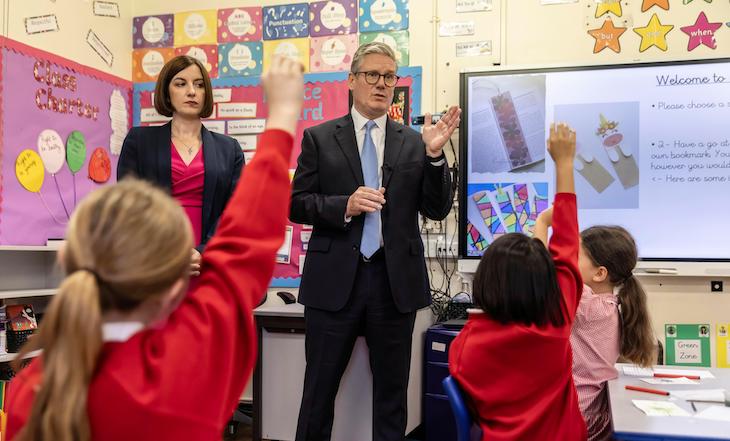Science, which has been kicked about since GCSEs replaced O-Levels in 1986, is in for another shake-up. The latest review of the curriculum – commissioned by Education Secretary Bridget Phillipson – is set to recommend that all schools must teach separate sciences to children in Years 10 and 11. That should be a good thing. ‘Triple science’ won’t be mandatory, but it will become a statutory entitlement alongside the usual diet of ‘double science’. If a child wants to learn an extra dollop of science then that will be their right. What’s not to like about that?
Schools are so hard up that they cannot afford to pay for supply teachers to stand in so that their teachers can be trained to teach physics properly
The inevitable wet blanket is likely to be the perennial shortage of physics teachers. I’m doing my bit, at least. I have taught physics for 30 years and I have no plans to stop. I enjoy working with children, and I enjoy physics. I also have the privilege of working with other physicists. Unfortunately, that picture is not universal. Recent research by the Institute of Physics has found that a quarter of state schools do not have a single specialist physics teacher, while about 58 per cent of physics classes at GCSE are taught by non-specialists.
Shoehorning more science lessons, and hence more physics lessons into the school curriculum will only exacerbate the shortage of teachers who can deliver those lessons. One approach, of course, is to train teachers from other science disciplines to teach physics with confidence. The Department for Education (DfE) has funded The Subject Knowledge for Physics Teaching (SKPT) programme to do just that.
Unfortunately, the picture relayed to me by an experienced teacher trainer is not quite so rosy. There are questions over ongoing DfE funding for the SKPT teacher coaching. It is also difficult for teachers to be covered so that they can come out to the training sessions to teach physics for non-specialists.
In essence, schools are so hard up that they cannot afford to pay for supply teachers to stand in so that their teachers can be trained to teach physics properly. It is a mess. Perhaps my cynicism over the plan to offer triple science to all is well founded.
If Phillipson wants to be truly radical, she should take a long hard look at double science. This beast was unknown when I sat O-Levels in physics and chemistry in the summer of 1984. I’d dropped biology at my first opportunity at the end of what we used to call the third year, and I haven’t suffered as a result.
Four years later, the Education Reform Act of 1988 introduced the National Curriculum and its requirement for a ‘broad and balanced’ science course that would be mandatory to age 16. Dropping a science was no longer an option, but three science GCSEs was quite sensibly recognised as being too much for many pupils. The solution was to take two thirds of the content from each subject and put them together in a course that led to two GCSEs in science.
That does not mean that double science must be taught by two teachers. In my own school, I teach the physics to my double science sets while colleagues from chemistry and biology teach their own specialisms. This works, incidentally, because we have enough physics teachers. We cover enough content to prepare those pupils for A-Levels in all three sciences, if that is what they want to do. The extra content that packs out the triple science course is not necessary for further study – but how could it be when only a minority of GCSE pupils follow triple science?
Here’s my suggestion. Award separate GCSEs in Biology, Physics and Chemistry for the content in the current double science course. Simple! If the government is really committed to science education, then any extra curriculum time given to science would be better spent fostering problem solving skills. They are likely to be more useful to more pupils than memorising yet more facts that may well be forgotten the day after the exam. But nothing is likely to work very well without the teachers to deliver it.
Whatever Phillipson chooses to do in her time at the DfE, unless she insists that her initiatives are properly funded then she is likely to be yet another Education Secretary who promises far more than they ever deliver.








Comments